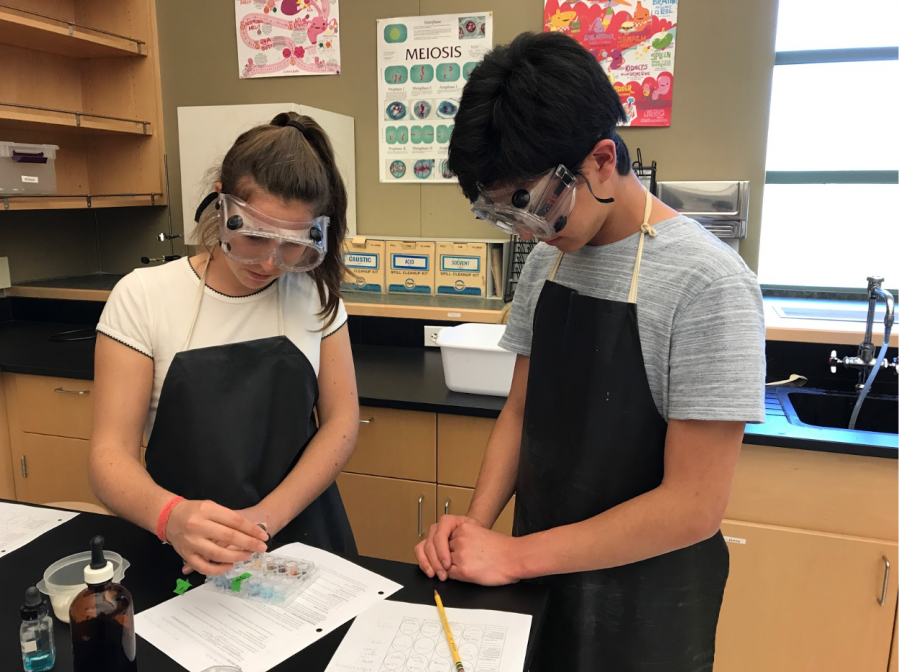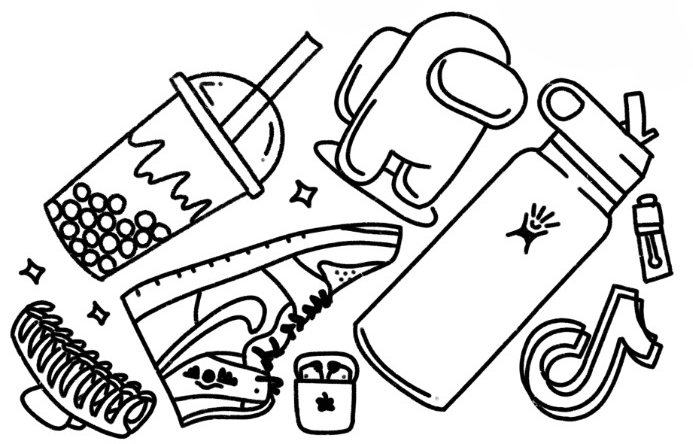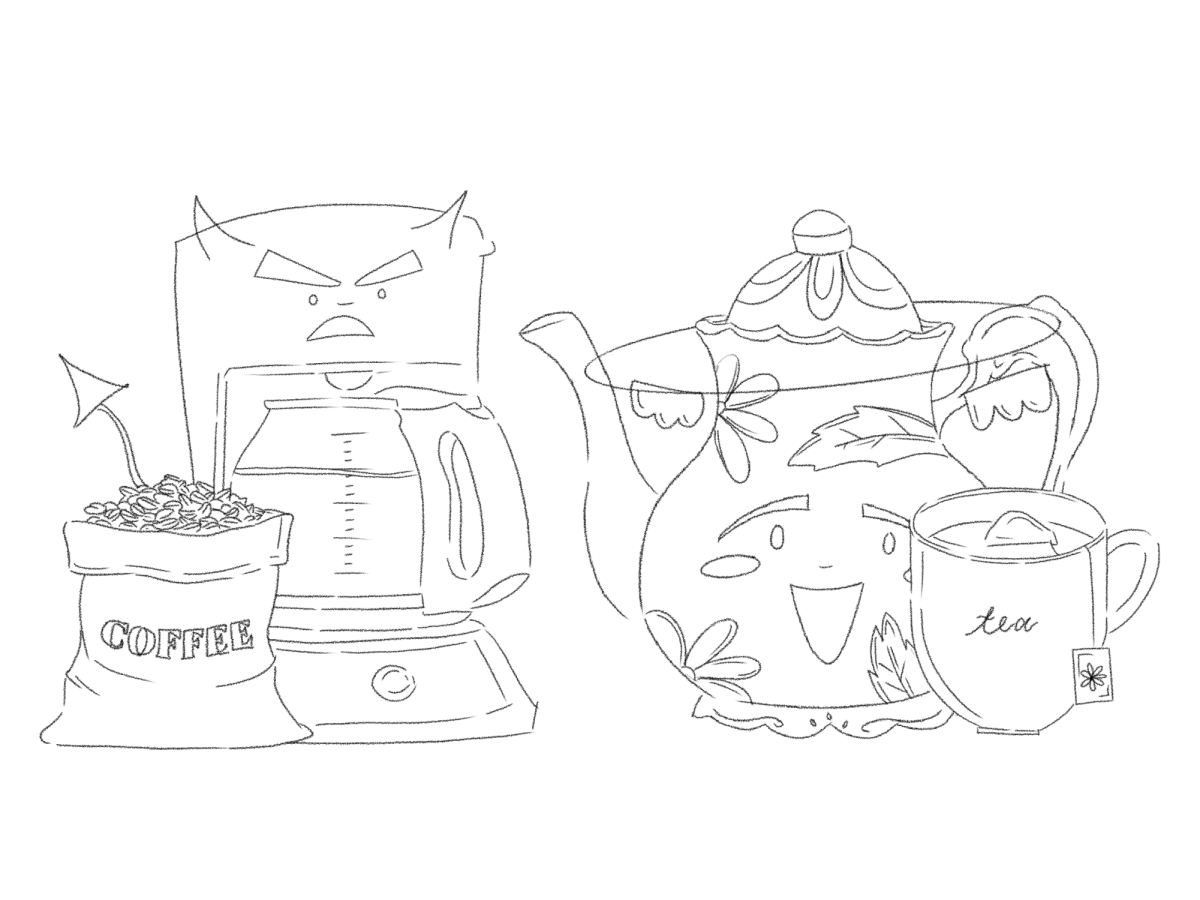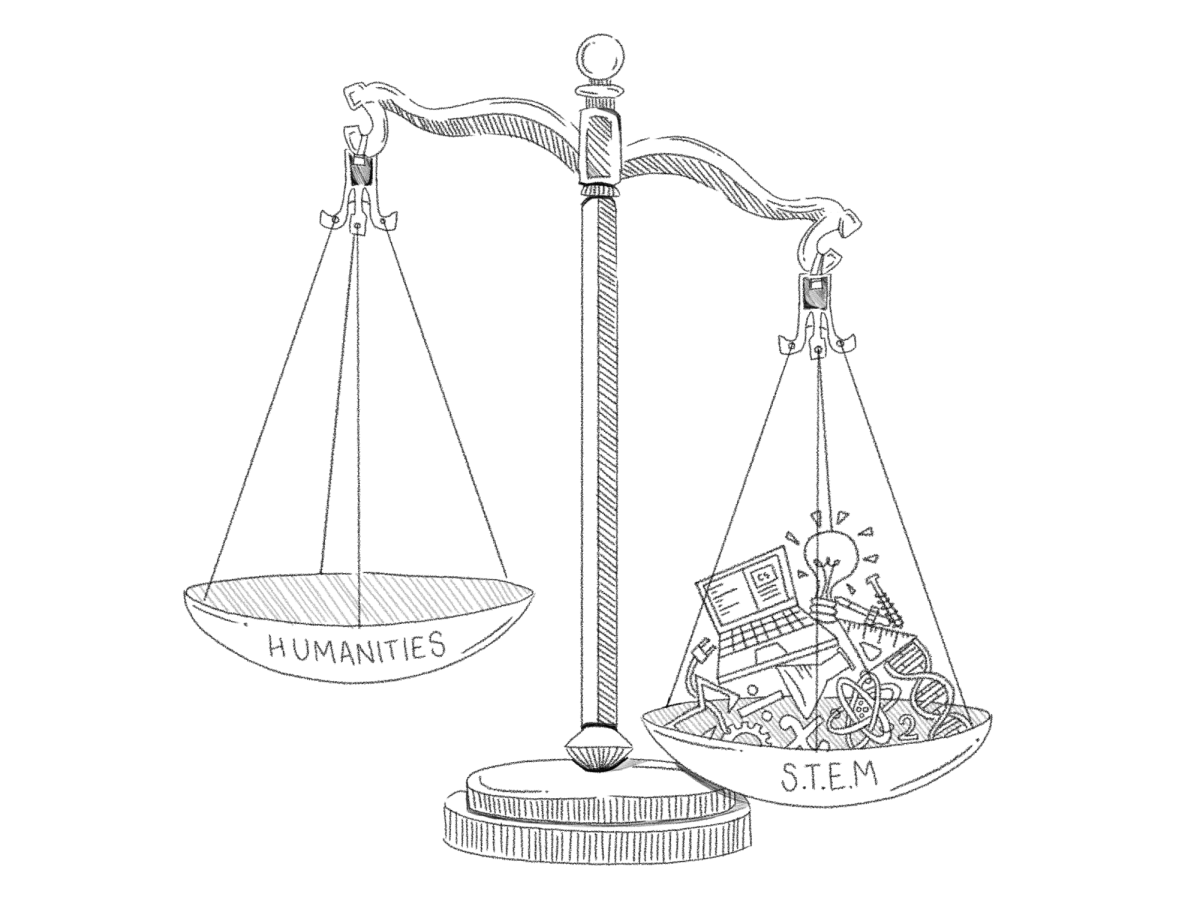Menlo juniors work on their food lab. Staff photo: Sam Fortenbaugh.
By Sam Fortenbaugh
Menlo does a solid job of offering their students a variety of course options and flexibility for upperclassmen to personalize their schedules, but there are still areas in which it can improve. For example, there are two different physics classes offered for freshman–physics 1 and conceptual physics–and two different chemistry classes offered for sophomores–conceptual and accelerated chemistry–, but there is only one level of biology offered to juniors. Multiple courses allow students to take ownership of their high school education by choosing what they want to study. There are merits to not focusing on just one field during high school, but students can still get a broad education while taking more advanced classes.
Menlo offers Advanced Topics in Biology, a honors-level course, but only seniors can take this class because it requires a pre-requisite. Menlo should add a honors biology class for juniors, so juniors have the option to dive deeper into biology during their junior year. In addition, this could allow the senior class Advanced Topics in Biology to be redesigned so students can learn more in the class. This would allow students who are really interested in biology to learn more biology when they are at Menlo.
In addition, some students feel they are at a disadvantage in biology because they did not take accelerated chemistry as a sophomore. Unit two of biology involves chemistry, so this can result in the students who know more about chemistry having an advantage over those who do not. Those students do have an advantage, but it is a small one because the unit uses mostly basic chemistry knowledge.
“We feel the material [in Biology] is at a level that every junior can handle, regardless of level of chemistry taken,” biology teacher Tanya Buxton said. “We have worked hard on the curriculum so that the class includes material that every student should be exposed to at this stage of their life. Because it isn’t a very quantitative class, unlike the difference in conceptual and accelerated chemistry, students of all math levels can succeed this class,” Buxton said. Buxton’s point is valid, but just because all students can handle the class does not mean that there should not be a more advanced option for students who want a more challenging and accelerated class.
Many juniors agree that two different biology classes would be beneficial. “I think there should be two biology classes offered to juniors,” junior Jake Coslet said. “One class should offer the base knowledge and the other would be similar, but faster with more coverage.”









Jamie Formato • Nov 7, 2017 at 2:09 pm
There is no shortage of opportunities for students at Menlo who are “really interested in biology to learn more biology when they are at Menlo”. Our Advanced Topics in Biology curriculum exceeds in depth and breadth that of the AP curriculum. Should students want to ‘learn more’ they can also take BioTechnology Research: a capstone class that, in my opinion as a biomedical engineer and educator with 20+ years of experience, provides (a) better opportunities than many undergraduate programs and (b) is rare in secondary education in the United States. Here is an example of research projects completed by students last year in BioTechnology research:
Can Nanopore Technology be Used to Detect Individual Protein Molecules in a Sample?.pdf
Does Berberine Impact Visual System Regeneration via an Epigenetic Mechanism?.pdf
Does HSP-90 Expression Increase in Tardigrades Under Extreme Conditions?.pdf
There have been hundreds of research projects completed by Menlo students over the past 20 years in the Biological Sciences. Please join us at our annual “BioTech Night” in May (watch for it in the announcements!) to learn more. There is no limit to how far you can follow your interests in Biology here in the Menlo Science program.
Jamie Formato
Chair, Science Department